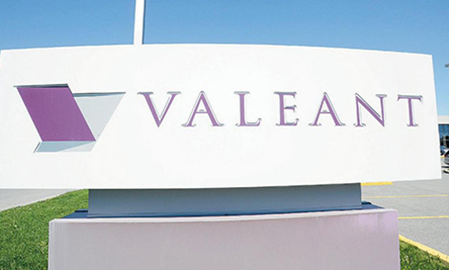Valeant Pharmaceuticals is buying Salix Pharmaceuticals for $10.4 billion — $158 per share — in cash. Valeant’s move knocks Allergan and Shire from Salix’s list of potential owners as well as brings a line of gastrointestinal drugs to Valeant’s drug offering. Bloomberg notes that the deal includes some baggage, including Salix’s recent restatement of its 2013 and 2014 results that indicated lower product demand.
Merck and NGM Biopharmaceuticals inked a five-year obesity and diabetes research collaboration. The Wall Street Journal reports that the transaction includes $95 million for NGM and development and commercialization rights for Merck, which will also pay an additional $106 million for a 15% stake in NGM. Forbes notes that Merck’s deal with “old-school” biotech NGM is also notable because NGM keeps full rights to mid-clinical stage NGM282, which is being tested for biliary cirrhosis and non-alcoholic steatohepatitis.
Bristol-Myers Squibb also joined the Monday collaboration scrum with two announcements. The drugmaker announced that it signed an immuno-oncology collaboration agreement with Rigel that will leverage Rigel’s portfolio of TGF beta receptor kinase inhibitors. The $30-million upfront deal for Rigel gives BMS exclusive worldwide development and commercialization rights to small molecules developed using Rigel’s TGF beta library. This is in addition to BMS’s agreement to buy up Flexus Biosciences, which the companies described in a statement as having “a potential consideration of $1.25 billion.” The deal will give BMS rights to Flexus’s preclinical immuno-oncology ID01 inhibitors. It also provides additional oomph behind the company’s focus on developing immuno-oncology products. Bristol-Myers signed a cancer collaboration with CytomX Therapeutics in May 2014 as well as entered into a series of collaborations to help optimize its cancer drug Opdivo.
Pfizer could score the first FDA-approved treatment for lymphangioleiomyomatosis, a rare lung disease. PharmaTimes reports that the company filed a supplemental new drug application with the FDA for its organ-rejection drug Rapamune.
Vox has a takedown of the Toronto Star‘s efforts to correct an HPV vaccination story. Describing it as a “textbook case in how to botch a health story,” Vox says the TS‘s February 5 story relied on “unproven anecdotes” which assumed a cause-and-effect between the vaccinated women and their reported ailments and suggested that “dozens of women north of the border had been harmed or worse by the Gardasil HPV vaccine, despite lacking “proof of harm.” The coverage comes amid an ongoing controversy over discounted anti-vaccine research and a measles outbreak that includes 154 confirmed cases as of February 20 of this year.








